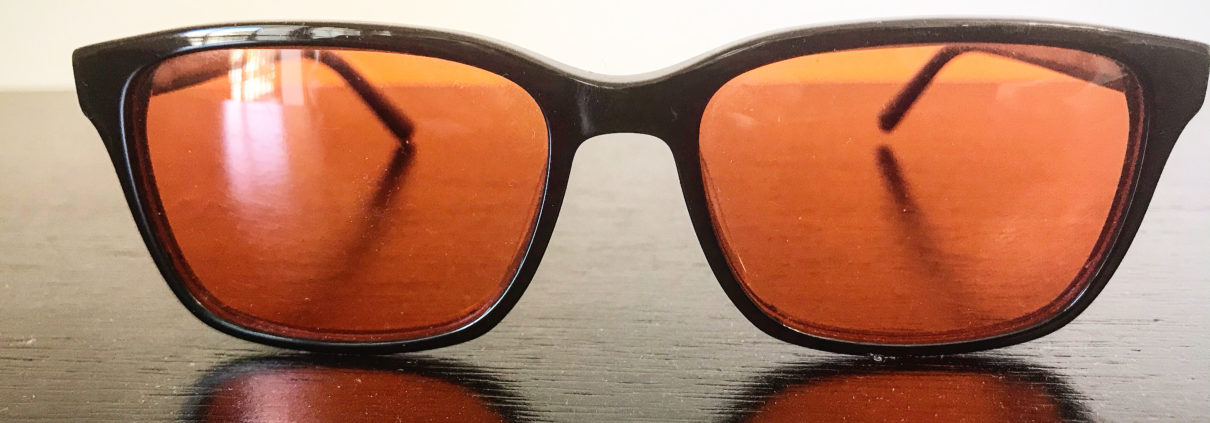What Are Blue Light Blocking Glasses?
Light is not only the primary energy source for all living organisms on planet Earth, but it also represents the number one, time cue for the human circadian clock. With the digital revolution, artificial blue light invaded our homes and bedrooms, and we can not imagine our life without smartphones and TV.
However, the late-night use of modern technologies, including Smartphones; plasma TV screens; computers; or tablets, have a detrimental effect on sleep and ultimately on general wellbeing.
Effect Of Blue Light On Circadian Rhythm
The artificial blue light from screens and LED light sources can interfere with circadian rhythms and suppresses the release of the sleep-regulating hormone, melatonin. Melatonin participates in the initiation of sleep and a deficiency can cause difficulties falling and staying asleep, and also reduces sleep quality.
Blue Light Glasses Benefits
In the late afternoon and evening, we should avoid blue light as much as possible and get closer to the light spectrum of dusk and dim light conditions, which enhances melatonin secretion and promotes drowsiness.
Do Blue Light Blocking Glasses Work?
Wearing blue, light-blocking glasses and installing screen protecting blue light filter on all electronic devices helps to create artificial dim light conditions essential for melatonin synthesis.
Consider using blue, light-blocking glasses after 6 pm and especially in the evening when watching television. Rather than opting for a cheap product, use trusted sources.
How Can You Test Your Blue Light Filter?
I have bought several online, but almost all of them were not effective enough. If you are purchasing the glasses in a store, you can run a quick test to see how effective they are. Google blue, light-blocking test images and look at the image with and without the blue, light-blocking glasses.
Basically, you need to compare two different colour spectra on the blue-light test image. If you can see the blue part between 400 and 480nm, the lenses are not good enough, and I would not recommend these glasses. Usually, better quality blue blockers are red-tinted.
Blue Light Filter Glasses
The good news is that they don’t have to be ugly; there are various frames and designs on the market to satisfy everyone’s taste. Alternatively, customise the glasses which makes it more likely that you will wear them in the long term. There are also blue, light-blocking glasses, which partially filter blue light. These glasses are not tinted and are recommended for people who are working all day long in front of computer screens.
Inadequate Lighting In The Workplace
Illumination at work is often outside of our control and wearing customised glasses, which filter the harmful parts of the blue-light spectrum are often the only choice to improve our exposure to harmful light frequencies.
More informed individuals try to offset the circadian mismatch induced by artificial light in the evening with blue-light blocking glasses and screen protection applications to simulate sunset and gain better sleep. However, the majority of the population don’t realise the consequences of their behavioural patterns.
In my opinion, public health authorities and the entire medical institutions should educate the community about light pollution to encourage a healthier way of life.
Stay Healthy!





